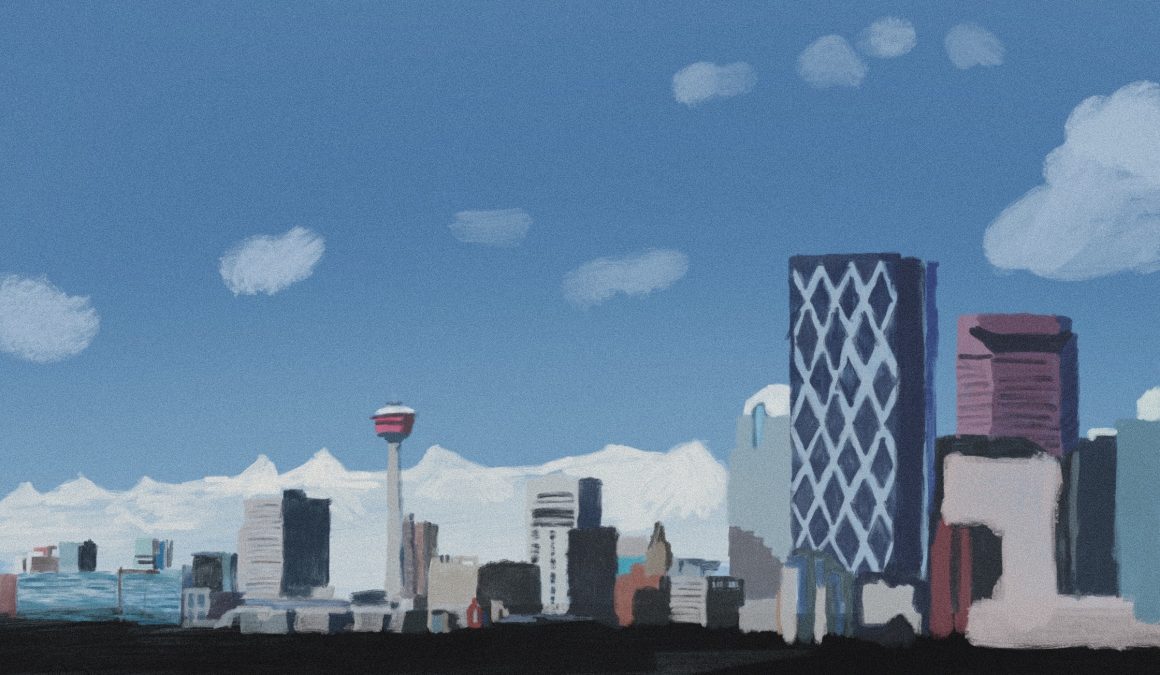
Urban sprawl, political will and money: The trifecta of evil in hindering Calgary’s climate progress
By Anjali Choudhary, December 21 2022—
In November 2021, Calgary’s city council voted to declare a climate emergency and released numerous calls to action to reduce our climate impact. However, over one year later, climate experts and activists continue to criticize the city for their lack of funding and meaningful action toward sustainability. Living in Alberta, many face the internal battle between wanting a profitable future from our rich oil and gas sector and worrying that we may not have a real future if we continue on this path. However, Calgary — as a large area both in space and population — has its own concerns with sustainability.
In a webinar titled Child Health and Wellness Seminar: Sustainability Matters: Prospects for a Just Transition in Calgary in a Time of Crisis, an associate professor emeritus at the University of Calgary and senior researcher with the Sustainable Calgary Society outlined some of the key concerns related to Calgary’s sustainable development and broad plans to tackle them.
Dr. Noel Gerard Keough began by voicing serious concerns regarding the City of Calgary’s tendency to build residential and commercial properties in the vast area of land we have.
“We’re quite a spread-out city, and that has serious implications,” he said. Comparing it to New York City, he claims that “there’s a little over a million people in Calgary, and we occupy the same area of land as the 10 million plus people in New York City.”
Although New York City is often ridiculed for their absurdly small apartments and living spaces, its reputation as a walkable city is idealized and praised. Calgary, in comparison, often requires individuals to drive because of its spread-out nature. Some communities in Calgary do not even have access to a viable transit route and are bound to their cars. As a result, we emit large amounts of pollution. However, in a city that consistently hits below -30° Celsius in the winter, the foresight into global warming problems five years down the road is overshadowed by the impending cold you will feel in the next five minutes if choosing to walk or wait for the LRT.
This is not new news, however. In 2016, former Mayor Naheed Nenshi introduced legislation to combat this urban sprawl. Nonetheless, according to Keough’s data, the growth has continued to persist and become more detrimental. Why do we fail to see change despite there being individuals in power that are passing environmental policies? Keough believes that our main issue is rooted in money and political will.
“The problem in our city, as we see it, is not that there’s not a lot of policy that’s trying to deal with these issues that I speak about, but the problem has been backing up policy intentions with budgets and work plans,” said Keough. “One of the reasons we believe that we haven’t been able to turn policy into action is because of the influence of money in politics.”
He found that much of the funding in municipal politics is funnelled in from the development industry — the very people that continue to build houses, contribute to the urban sprawl and heavily profit from it.
Adding on to the notion of ineffective politics, Keough claimed that in federal politics, “because of the first-past-the-post system (FPTP) […] the will of the people, or the perspective of the average Calgarian, the average Albertan, is not being represented in Ottawa because of this skewed system.”
The issue of the FPTP electoral system and its lack of representation for the Canadian public has been a long-standing issue in this country. In fact, Prime Minister Justin Trudeau campaigned on reforming this system in his 2015 election platform, but why would he change a system that benefits him and allows him to get re-elected? Unfortunately, the issue of money and political will is limited neither to Calgary nor the issue of sustainability.
Keough underlines the importance of transforming our governance systems in order to be able to work towards sustainable development in our city and country. And, he says, this needs to be done immediately.
“We’re seeing that the window of opportunity for a gradual transition in our own city, to a sustainable future, has closed in our opinion based on our analysis. We must now embark on a rapid transition or face real prospects of significantly compromised quality of life and livelihoods, and a precarious future for our children and their city,” said Keough.
Only time will tell if Calgary is ready for such a transition.
This article is a part of our Voices section and does not necessarily reflect the views of the Gauntlet editorial board.
